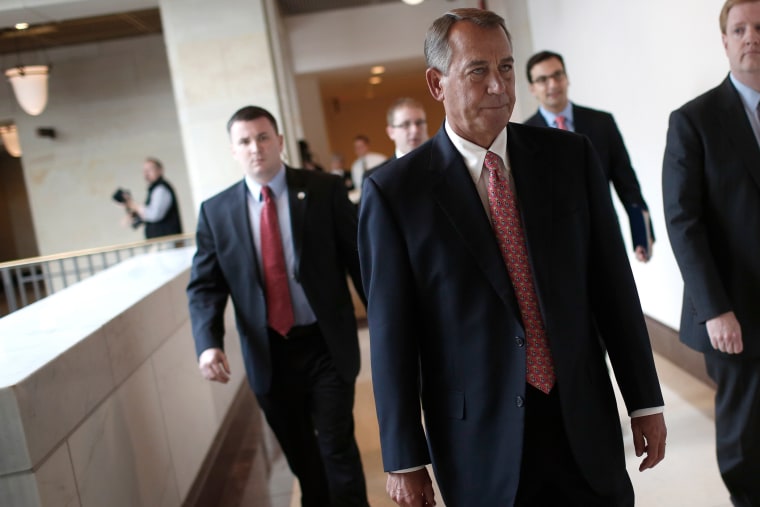Americans learned this week of a young man in Ohio who "wanted to set up an ISIS cell" in the United States, and had aspirations of attacking the U.S. Capitol. That certainly sounds scary, but fortunately, there was never any real danger -- the accused would-be terrorist, Christopher Lee Cornell, was unknowingly communicating with undercover law-enforcement officials the entire time.
Nevertheless, when officials are able to prevent violence, that's obviously a good thing, and it hardly came as a surprise when political leaders praised law enforcement for the arrest. Benjy Sarlin noted, however, that House Speaker John Boehner (R-Ohio) made a curious claim about the story yesterday.
House Speaker John Boehner said that a man arrested in a plot to bomb the U.S. Capitol was caught using a program allowed by the Foreign Intelligence Surveillance Act (FISA), a law that has come under fire from civil liberties advocates who say it gives the government too much power to spy on Americans' communications. "With regard to the threat to the Capitol, coming frankly not far from where I live, the first thing that strikes me is we would have never known about this had it not been for the FISA program and our ability to collect information on people who pose an imminent threat," Boehner told reporters at the GOP retreat in Hershey.
I'll concede that Boehner, given his powerful post, has very likely received a classified briefing about these developments, including information that I have no access to.
That said, there's reason for some skepticism here.
According to the publicly available information, the would-be attacker "was posting comments on Twitter in support of ISIS. Shortly after those posts began appearing, the FBI sent the operative to meet with him undercover."
In other words, to know that this guy was up to no good, we didn't have to tap his phone or peek at his emails; we simply had to read his publicly available tweets.
Politico added that the FBI noted in federal court papers that Cornell had also posted videos online in support of Islamic State militants, which no doubt sparked interest from law enforcement. The FBI affidavit "did not discuss any use of National Security Agency surveillance or FISA in the case."
Again, I have no way of knowing what kind of sensitive information Boehner may have been given by intelligence officials about this case. Maybe FISA had something to do with this; maybe not.
I do know, however, that a lingering debate is still underway about the NSA and the scope of the government's surveillance powers, and many conservative policymakers, including Boehner, have had trouble identifying real-world examples of the FISA law producing tangible results that demonstrate a need for the controversial programs.
